
Keep South Carolina Wild
December 17, 2019
We hear the words time and time again, “I can’t believe how fast this year has flown by.” And yet, the phrase continues to ring true. As days or weeks may seem long, the months and years continue to speed up at rapid pace. In looking back on 2019, I am extremely proud of SCWF’s accomplishments for our state’s wildlife and wildlife habitat.

Many of you may be familiar with our mission statement, or perhaps you participated in one of our programs and still are not 100% sure what we do. The official mission of the South Carolina Wildlife Federation is to conserve and restore South Carolina’s wildlife and wildlife habitat through education and advocacy. In short, we conserve, we advocate, we restore, and we educate. We CARE about our state’s natural heritage and are working to ensure the future of our amazing wildlife and wildlife habitat for generations to come.
Included below, you will find an outline of our key initiatives from 2019. We hope this gives all of our supporters a greater understanding of SCWF’s mission and outreach.
As we look to 2020, I want to thank everyone for their support this year. We cannot wait to share all of the exciting plans, classes, and events we have been planning for next year!
-Sara Green, SCWF Executive Director
CONSERVATION
Without conservation efforts, our wildlife populations would dwindle. The recent findings published by The Cornell Lab of Ornithology are a staggering example of the importance of conservation work. We’ve lost 2.5 billion migratory birds since the 1970s, which means we have a lot of work to do! Below are some of the real examples of conservation work SCWF is currently undertaking:
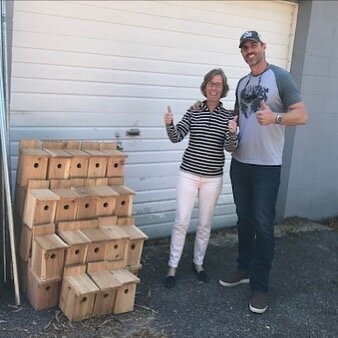
Prothonotary Warbler Boxes: During the spring and summer months, the Prothonotary Warbler calls South Carolina home to feast upon insects, spiders, and snails located in and around our forested wetlands, before returning to their wintering grounds as far south as Colombia, South America. Uncommon among warblers, it is a cavity nester, which presents us a great opportunity to help save this bird whose population has declined approximately 42% over the last 50 years. SCWF is working with private and corporate landowners in enhancing key breeding habitat areas with hundreds of nest boxes. SCWF has installed 225 Prothonotary Warbler Boxes this year, including gifting 50 to Palmetto Conservation Foundation to increase habitat along the Palmetto Trail. We currently have another 50 being built thanks to a donation from the Kooken Family Foundation.
Best Fishing Practices for Snapper/Grouper Complex Species: Thanks to a NOAA grant, the South Carolina Wildlife Federation and the South Atlantic Marine Fisheries Council have partnered to develop a tutorial for saltwater anglers to help reduce bycatch mortality in snapper/grouper complex species and thereby enhance fisheries stocks for more fishing opportunities. Through special training seminars and an online tutorial, SCWF has been able to provide over 475 SeaQualizer descending devices which is projected to drastically increase our snapper populations in the Atlantic coast.
Catawba-Wateree Wood Duck Box Program: Once threatened with near extinction from habitat destruction and overharvesting, wood duck populations are now steady or increasing. The South Carolina Wildlife Federation is partnering with Duke Energy, SCDNR and the Lake Wateree Association to increase wood duck populations by constructing and erecting 80 wood duck nesting boxes in the on the shorelines of Lake Wateree, Fishing Creek Reservoir, Rocky Creek, Cedar Creek Reservoirs, the Wateree River, and smaller ponds in between. SCWF has been coordinating with property owners, volunteers, biologists, and rangers to determine suitable sites for wood ducks. Boxes have been placed in locations that are convenient for monitoring and maintenance.
World Migratory Bird Day: On October 12th, SCWF partnered with Riverbanks Zoo to host their first World Migratory Bird Day. Together, they invited other partner organizations to educate more than 7,000 visitors on ways to create a better world for birds.
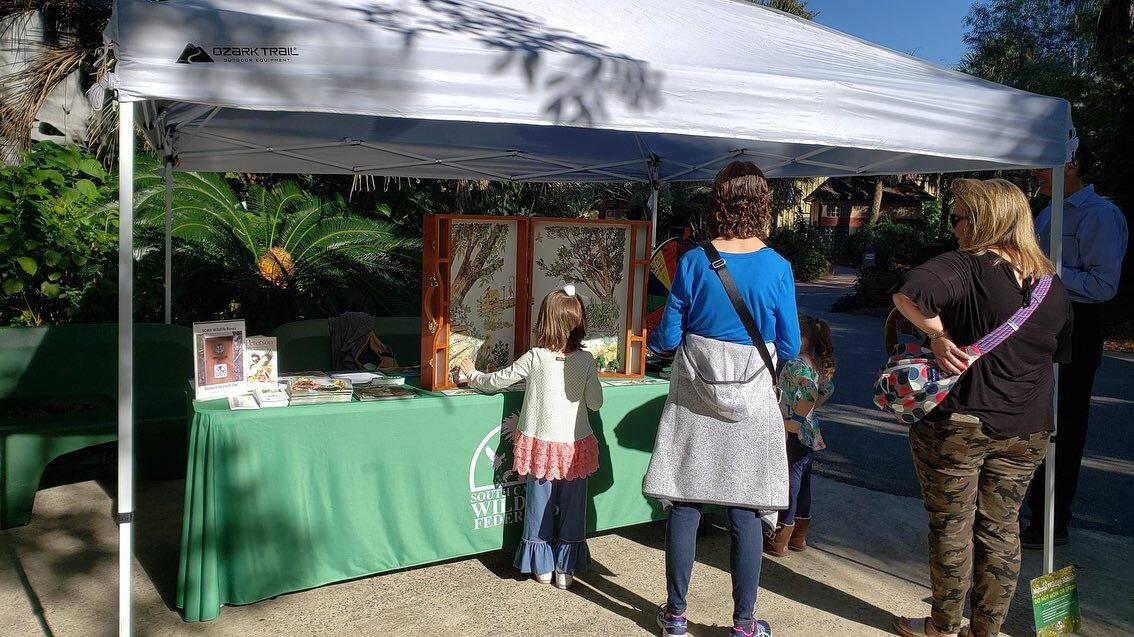
ADVOCACY
The South Carolina Wildlife Federation works with state legislators to protect precious wildlife habitat and ensure that sound scientific data is used to make decisions which affect wildlife. Our Government Relations Manager, Trip King, represents the SCWF, as well as our conservation partner, Audubon South Carolina (ASC) at the State House. For national matters, SCWF works closely with the National Wildlife Federation and other state affiliates to ensure our voices are heard.
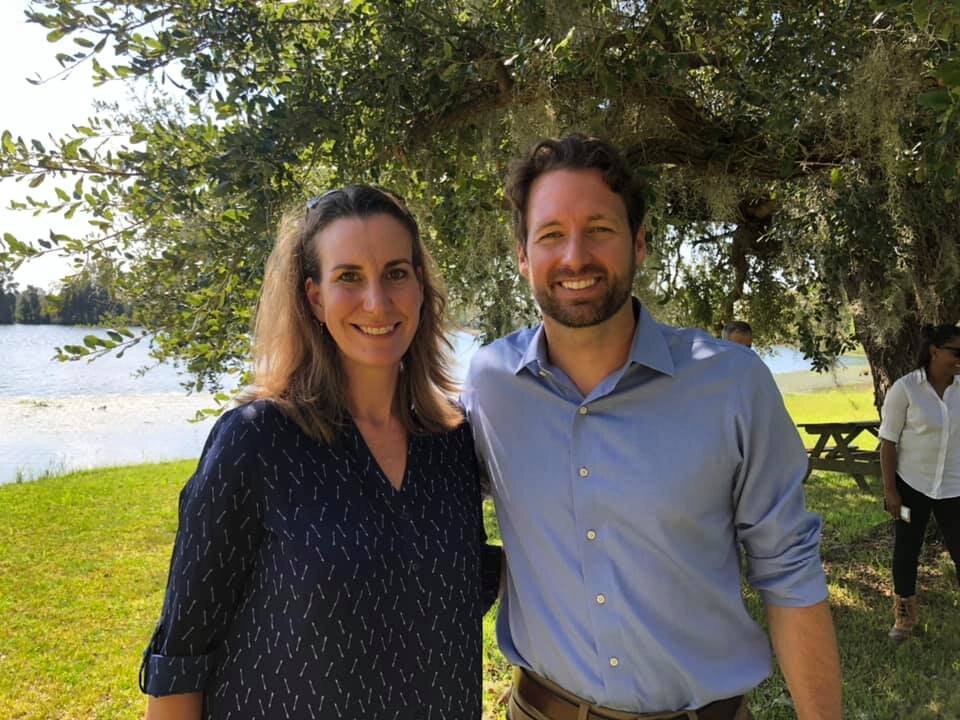
Joe Cunningham Lowcountry Walk: On September 16th, SCWF organized a walk with United States House Representative Joe Cunningham, SCDOT, Lord Berkeley Conservation Trust and the South Carolina Conservation Bank. It was a successful media event and opportunity to have real conversations about climate, conservation and natural infrastructure in Berkeley County to reduce flooding impacts.
Climate Strike: On September 20th, SCWF staff and students from the University of South Carolina SCWF Chapter attended the Climate Strike at the State House.
Meetings with South Carolina Representatives: in August of 2019, Sara Green & Trip King met with team members from the offices of U. S. Senator Lindsey Graham and U. S. Senator Tim Scott. They discussed federal issues such as our opposition to offshore drilling, support of full funding for the Land & Water Conservation Fund, and upholding the Endangered Species Act.
The 16th Annual Conservation Lobby Day: On March 19th, the SC Conservation Coalition held its annual Lobby Day, which is a wonderful opportunity for citizens to meet with their representatives face-to-face and ask them to support or vote against issues the conservation community is currently working on. It was a fantastic day of training for our staff and provided a direct opportunity for us to speak with our conservation partners, legislators, and community leaders.
Current issues SCWF is taking a stance on with legislators:
Funding of the South Carolina Conservation Bank
Bans on plastic bags & auxiliary containers
Opposing offshore drilling & seismic testing
Pushing for energy reform & solar growth
Needed climate resiliency
Funding for the Land & Water Conservation Fund
Upholding the Endangered Species Act
Passing Recovering America’s Wildlife Act
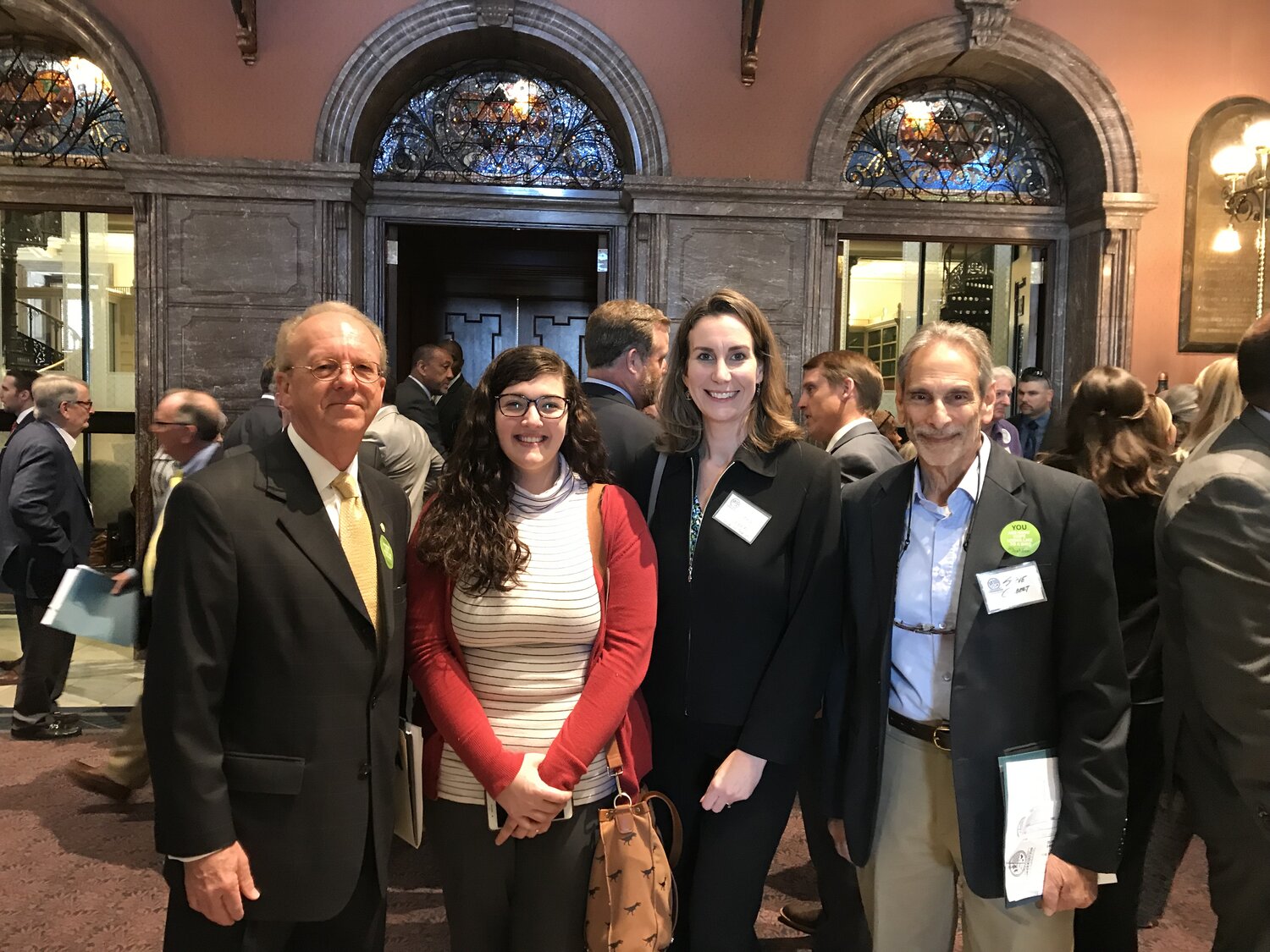
RESTORATION
South Carolina’s native wildlife is losing habitat at rapid rates due to climate change, human population growth, as well as private and commercial development. Here is a list of some of the ways SCWF is fighting to restore wildlife and wildlife habitat.
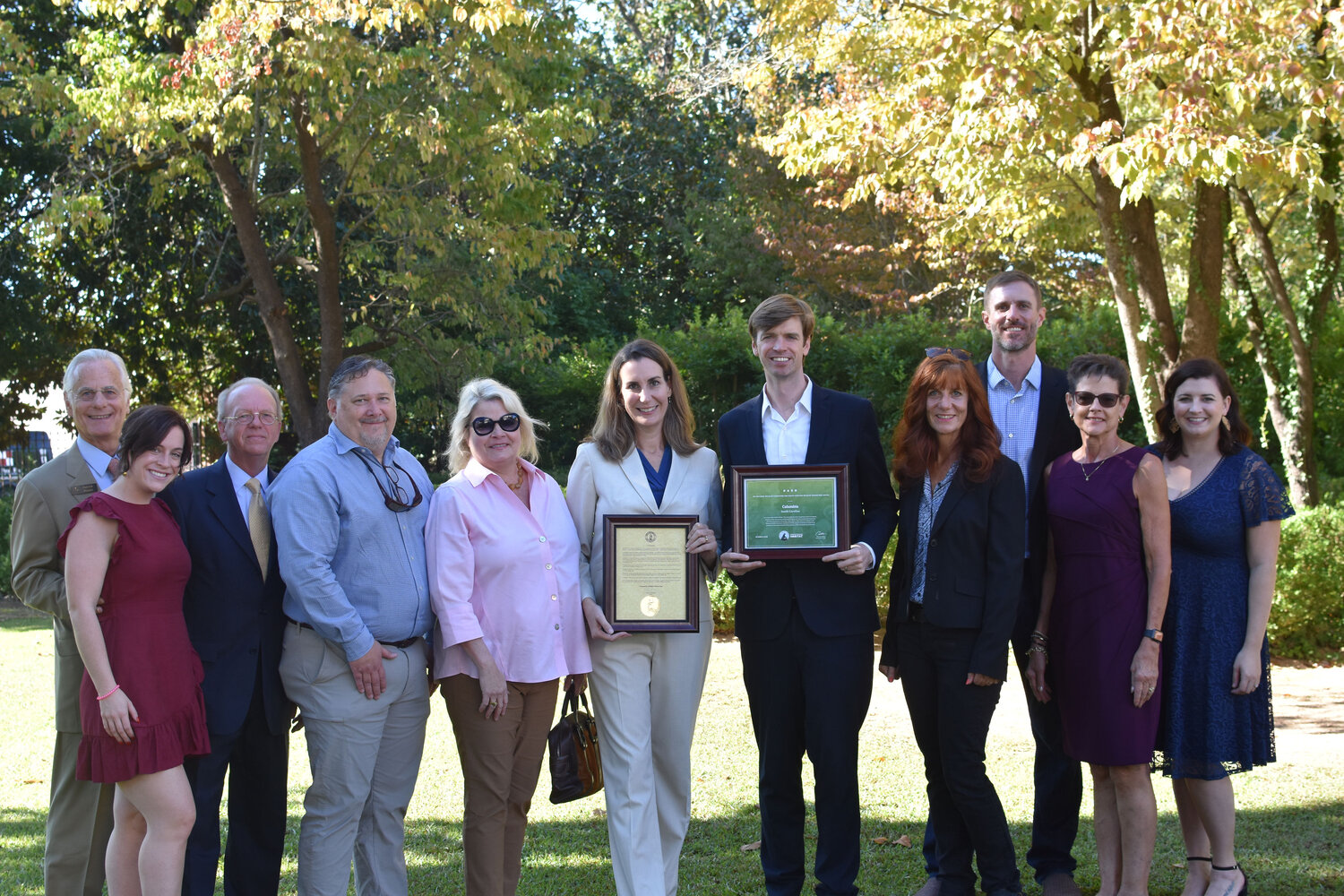
Wildlife Habitat Programs: Through our joint program with the National Wildlife Federation, individuals, churches and schools are able to register their backyard or garden as a Certified Wildlife Habitat®. In order to qualify, participants must fill out an application stating their green space provides each of the following: food sources, water sources, places for cover and places to raise their young. We also encourage everyone to practice sustainable gardening. To date, there are more than 8,000 Certified Wildlife Habitat® spaces in South Carolina. We also have the ability to certify communities as a Community Wildlife Habitat. To date, South Carolina has seven certified communities including the recently announced City of Columbia.
Wildlife and Industry Together (W.A.I.T.) Program: As South Carolina becomes increasingly developed, there is less land available for wildlife. Corporate landowners offset habitat loss by devoting their under-utilized lands to wildlife. This is achieved by matching site employees who are interested in wildlife with community partners to develop habitat plans. The W.A.I.T. program assists corporations, employees, facility neighbors, and other groups who desire to develop environmental projects in partnership with each other. Our industry partners are providing new wildlife habitat and creating community education programs throughout our state. To date, SCWF has over 30 W.A.I.T. partners and is continuing to add more each year.
Monarchs & Milkweed: There has recently been a sharp decline in Monarch overwintering numbers which may represent the shrinking of their migratory route. The 97% decline from their high over the past 20 years has researchers very concerned. It takes more than one milkweed plant for each surviving adult due to natural predators. That is an enormous amount of milkweed! Most North Americans were very lucky to have seen even one Monarch Butterfly over the past few years. In order to help educate and create more homes for our monarch populations, SCWF has given over 1,500 individuals in South Carolina milkweed and pollinator seed packets to plant. We plan to provide this program again in 2020.
Volunteer Workdays: On December 15th SCWF hosted our annual volunteer work day at Carolina Sandhills National Wildlife Refuge. SCWF staff and more than 35 volunteers worked on projects to clean the trail and replace trail signs. On December 16th, SCWF staff and four volunteers helped repair and clean 40 bluebird boxes at Camp Discovery in Blythewood, South Carolina. By cleaning out old nests and moving the boxes to safe locations, the boxes will be ideal habitats for birds mating in the spring.
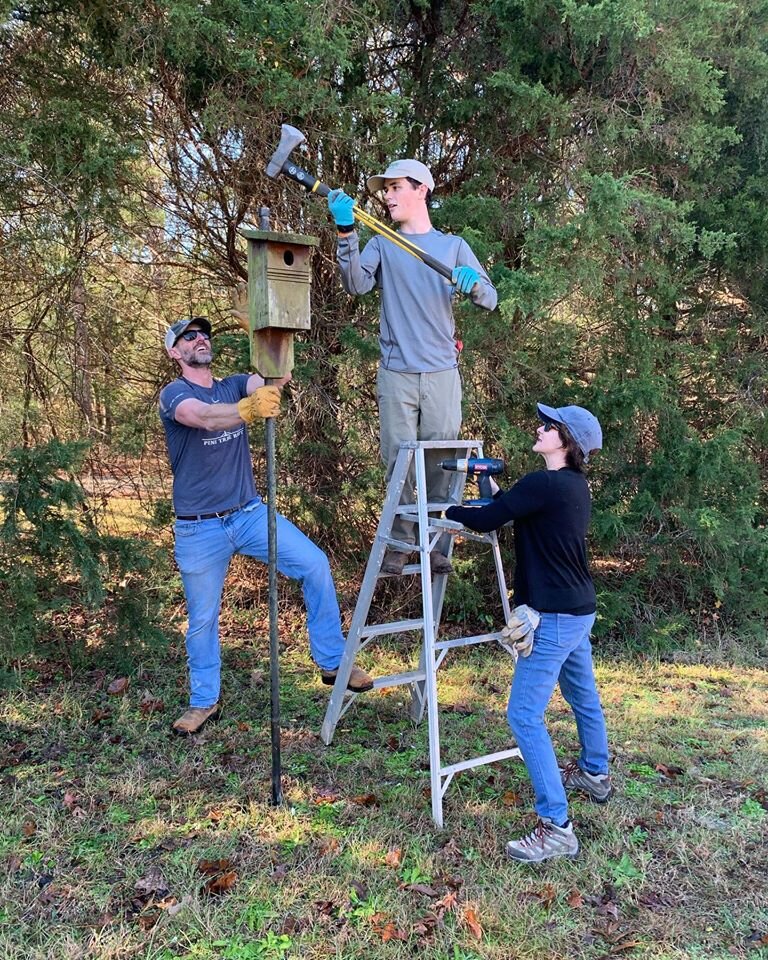
EDUCATION
Education is one of the most important factors to protecting South Carolina’s wildlife and wildlife habitat. Current generations and future generations need to have a solid understanding of the wildlife around them, as well as their own effects on nature, in order to make a lasting impact.
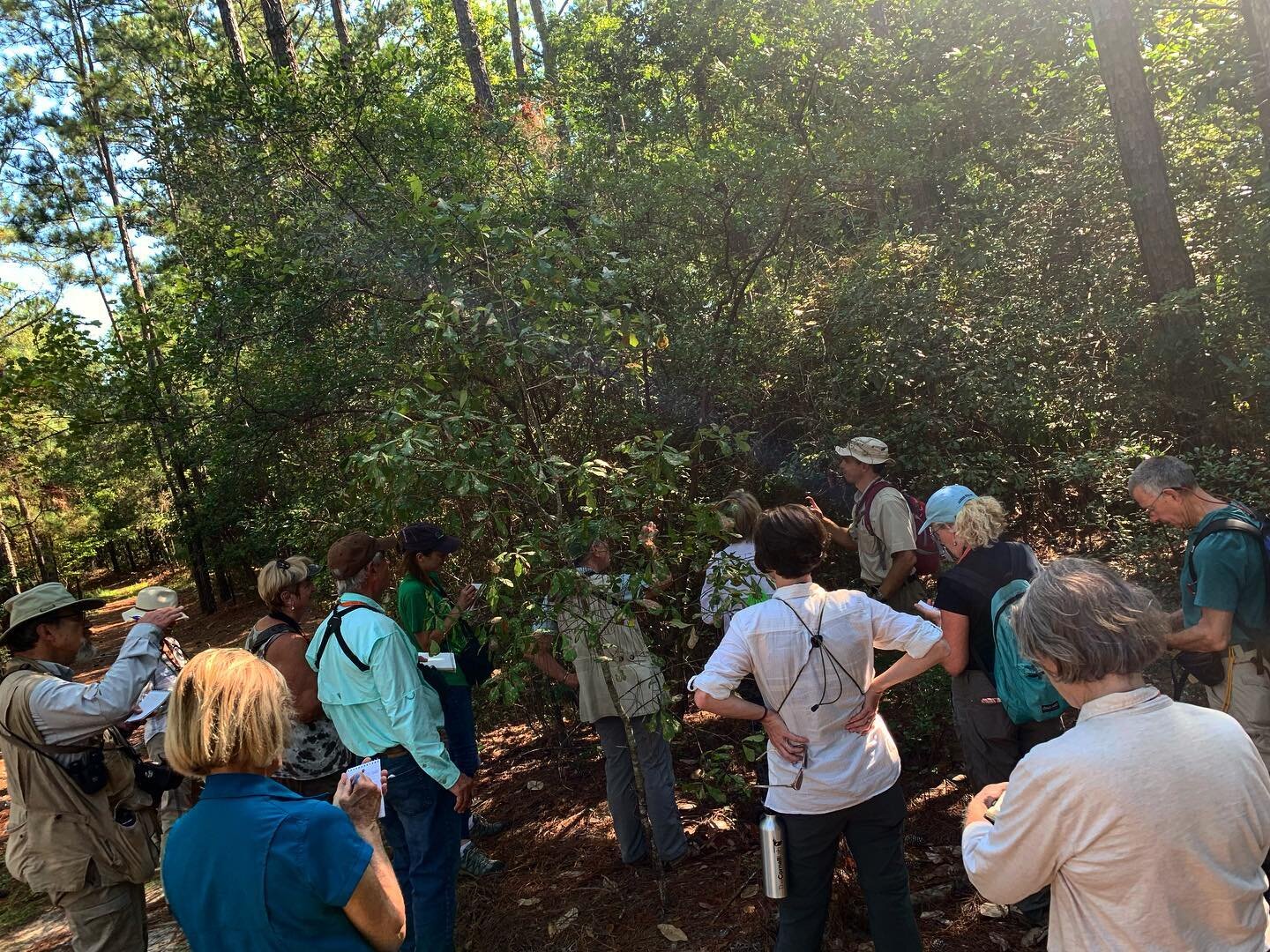
School & Garden Club Talks: SCWF Habitat Education Manager Jay Keck is rarely seen in the office, because he is usually leading an education class or talking to schools and garden clubs about the importance of protecting wildlife. On average, Jay participates in a minimum 5 educational programs a month around the entire state.
Master Naturalist Training: In partnership with Midlands Master Naturalist Association, SCWF offers the 12-week training course based in the Midlands. Students learn identification skills, ecological concepts, and natural history of the plants, animals, and ecosystems encountered. Students will see how this knowledge can be applied to manage for wildlife and to ensure that human impacts on our Earth are sustainable.
Skills Classes and Advanced Trainings: Each month, SCWF offers a number of wildlife and outdoor skills classes. From early morning kayak paddles to look for birds, Spiders of September, fishing clinics and archery, there is always something new to learn with SCWF!
Women’s Outdoor Retreat: Each year, over 200 women from all over South Carolina gather at Hickory Knob State Park for the South Carolina Wildlife Federation’s Women’s Outdoor Retreat (WOR). The Women’s Outdoor Retreat is one of the most beloved programs hosted by SCWF and 2019 tickets sold out in a record 3 hours! Women ages 16 and up came to experience the best of the outdoors with 30 class options featuring: Archery, backyard habitats, camping, kayaking/canoeing, birding, freshwater fishing, understanding maps, outdoor cooking, outdoor ethics, skeet shooting, and so much more!
Scholarships: The South Carolina Wildlife Federation is honored to be in a position to distribute educational grants to full-time students pursuing a degree in any environmental field at South Carolina schools of higher education. Both undergraduate and graduate students are eligible, based on their performance in academia and in related community activities. In 2019, SCWF announced a new scholarship fund, The Nicole Chadwick Memorial Fund, to honor the life of an endangered species biologist who made a long-lasting impact on wildlife conservation in South Carolina. This year 43 students submitted applications and we look forward to announcing the recipients in 2020.
Forks, Knives, & Spoonbills: A Dinner Celebrating Conservation: As a way to educate and engage a new audience on the realities of our imperiled bird species, SCWF hosted a 6-course dinner at Columbia’s Spotted Salamander. The program is expanding in 2020 with dinners in Beaufort, Columbia and Greenville. Each dinner features a six-course meal containing unique dishes inspired by imperiled species of birds. Participants will be led through each course by SCWF Habitat Education Manager, Jay Keck, and will learn about each bird species and the conservation efforts needed to help it thrive.
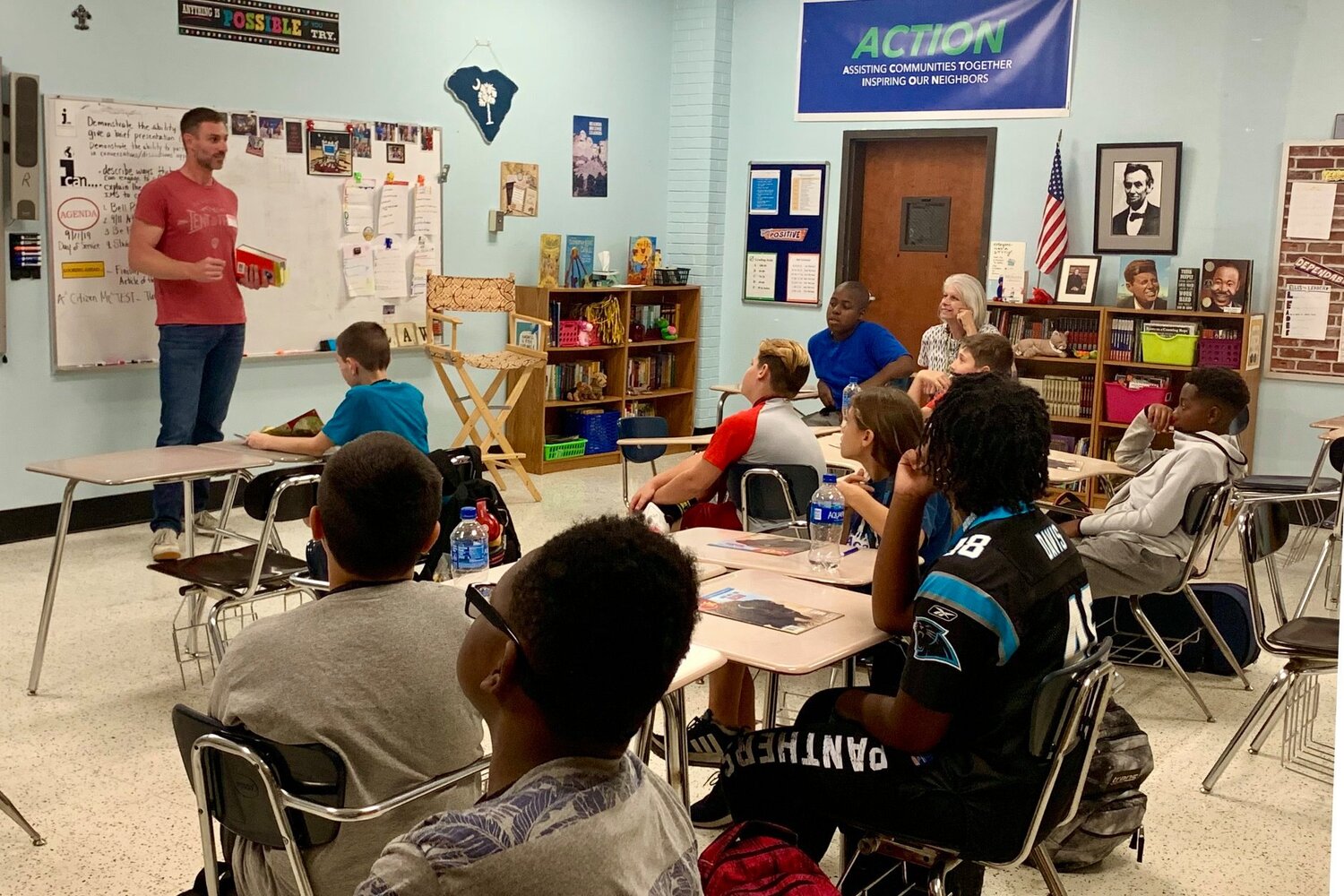
OUR PROMISE
We could not carry out our mission without the help of our generous supporters. We already have exciting programming in place for 2020 and your tax-deductible gift today will give us an important boost. As a donor with SCWF, we promise:
We will keep improving our increasingly popular outdoor education programs including our Backyard Wildlife Habitat, Women’s Outdoor Retreat and Pro Birder outings.
We will advocate for banning and limiting practices that damage natural populations of fish and wildlife.
We will accelerate our work to protect and enhance critical habitat for threatened insects, birds, reptiles, and amphibians.
We will re-double our efforts in providing opportunities for young people to spend more time outside learning about and enjoying the natural world.
We will continue our unique presence at the State House as legislation critical to the outdoor community is debated.
We will demand that science, not politics, be the guiding force behind key decisions about our conservation future.
“Never doubt that a small group of thoughtful committed citizens can change the world: indeed, it’s the only thing that ever has.”
-Margaret Mead
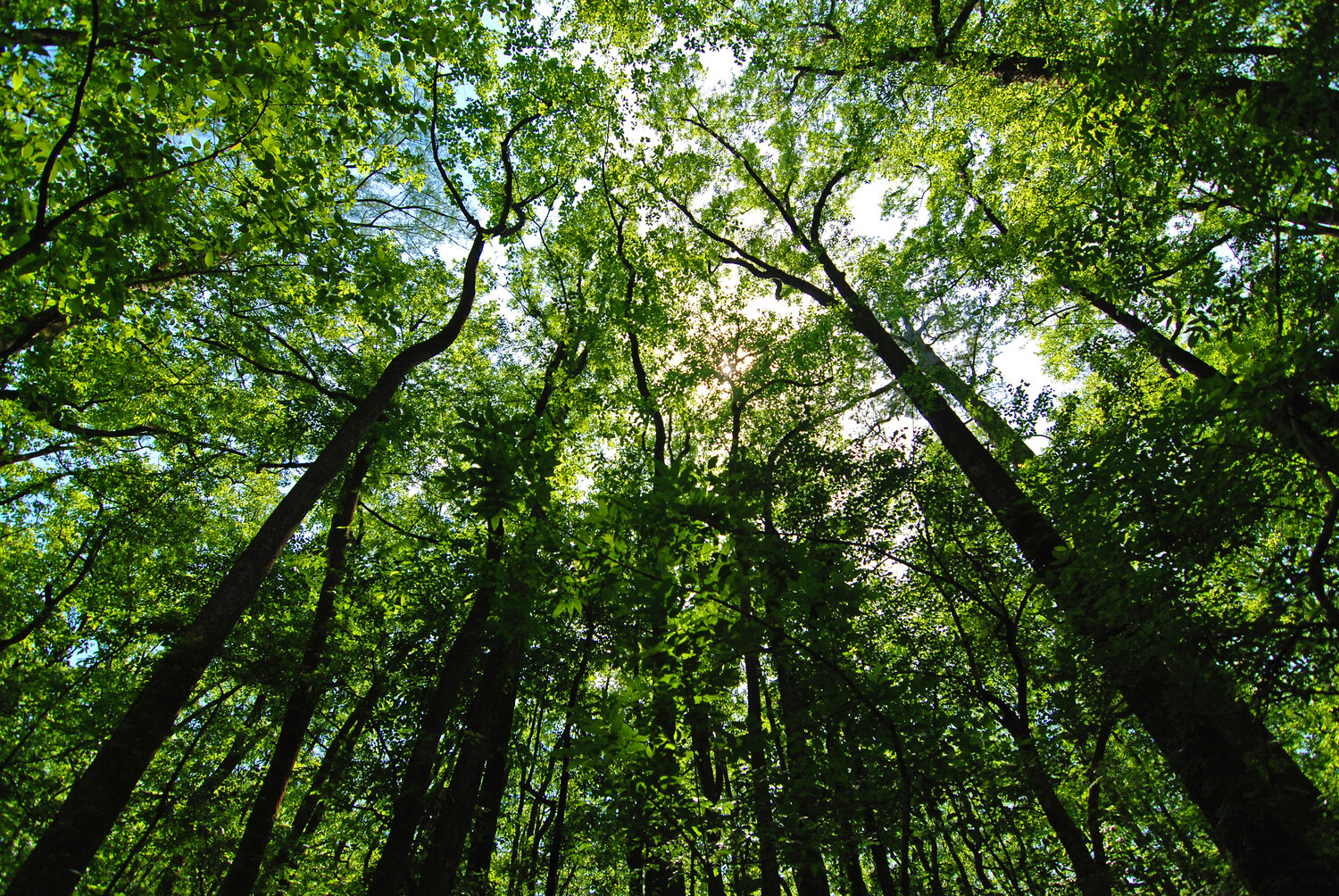
by April Rodgers, SCWF member and volunteer The changing Earth is a living classroom that should compel next the generations to be better stewards of our planet’s natural resources. As...

The General Assembly, 124th Session, adjourned sine die at 5:00 pm on May 12 thus concluding their work in the second year of a two-year session. A sine die resolution...
This past week, SCWF staff worked with residents in the Keowee Key community to install nesting boxes for Wood Ducks and Eastern Screech-Owls as part of SCWF's Upstate Nest Box...